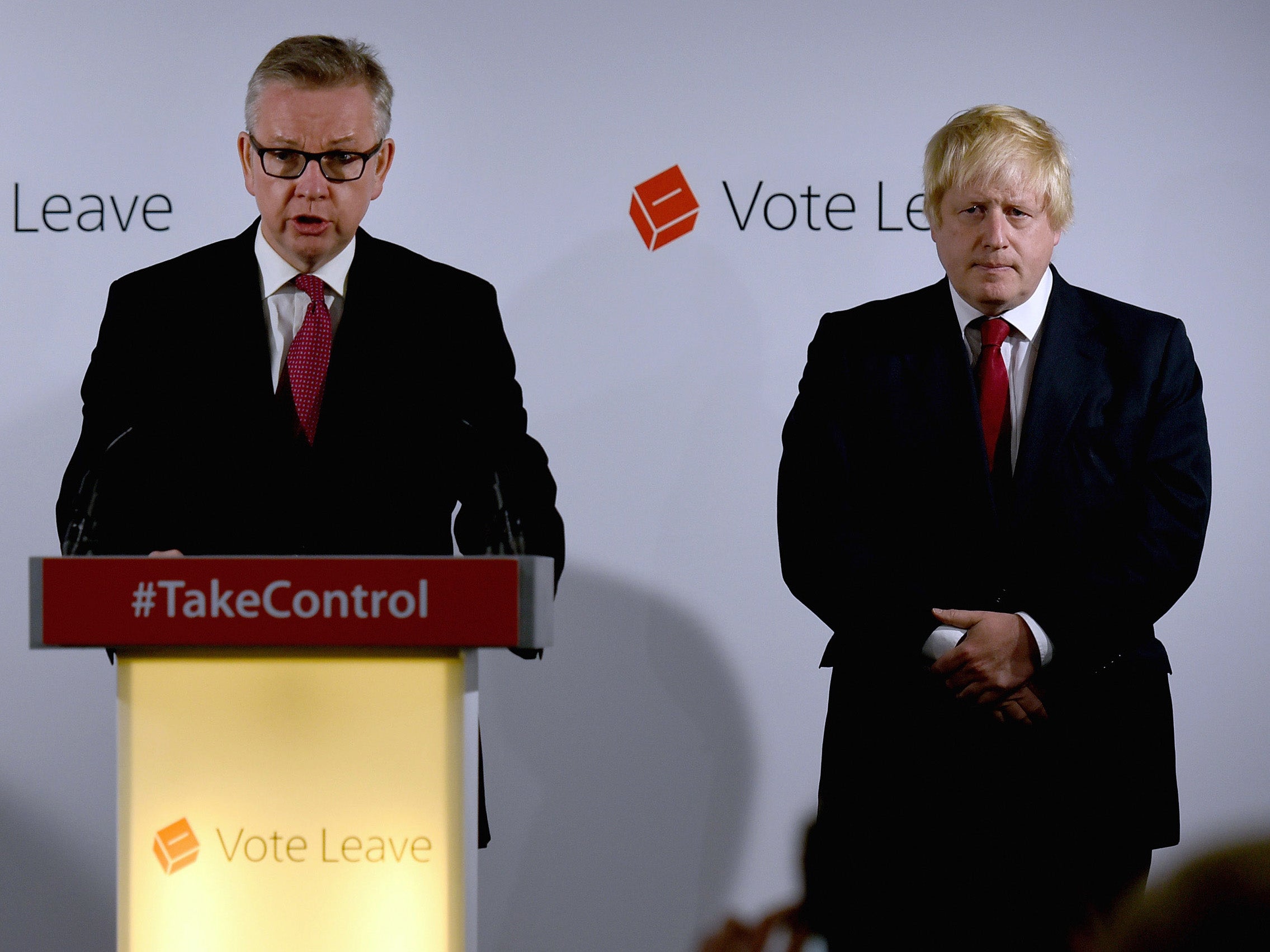Vanishingly low level of public awareness no-deal Brexit could happen in 2016, Google trends suggests
Britons did not start searching for no-deal online until Boris Johnson quit the cabinet in 2018
Your support helps us to tell the story
From reproductive rights to climate change to Big Tech, The Independent is on the ground when the story is developing. Whether it's investigating the financials of Elon Musk's pro-Trump PAC or producing our latest documentary, 'The A Word', which shines a light on the American women fighting for reproductive rights, we know how important it is to parse out the facts from the messaging.
At such a critical moment in US history, we need reporters on the ground. Your donation allows us to keep sending journalists to speak to both sides of the story.
The Independent is trusted by Americans across the entire political spectrum. And unlike many other quality news outlets, we choose not to lock Americans out of our reporting and analysis with paywalls. We believe quality journalism should be available to everyone, paid for by those who can afford it.
Your support makes all the difference.New analysis of Google search trends suggests a vanishingly low level of public awareness of the possibility of a no-deal Brexit at the time of the EU referendum in 2016.
Foreign secretary Dominic Raab said earlier this week that campaigners for a Leave vote had made clear during the referendum that the UK would strive to reach a Brexit deal with the remaining EU, but would leave without one if necessary.
But records of terms entered in the internet search engine show no evidence whatsoever of Britons inquiring about a Brexit deal or a no-deal outcome at the time.
Campaigners for a second referendum said the records added weight to their argument that the 2016 vote does not amount to an endorsement of no-deal, with Labour MP Gareth Thomas saying: “Despite attempts by prominent Brexit campaigners like Dominic Raab and Boris Johnson to re-write history, no-deal was barely even mentioned by Leave campaigners during the referendum. Even the most extreme proponents of Brexit, like Nigel Farage, promised we’d get a deal from the EU.”
According to Google Trends records, the earliest flicker of interest from the search engine's users in no-deal came in the weeks before Theresa May struck her ill-fated withdrawal agreement with the European Commission in November 2017.
But records suggest that searches did not begin in any number until July 2018, when Boris Johnson and David Davis walked out of her cabinet in protest at her deal.
There is evidence of continued interest in no-deal from that point onwards, with spikes in activity around the time of Ms May’s abortive first attempt to win MPs’ support for her plan, followed by the three “meaningful votes” in which the House of Commons rejected it.
During the fraught weeks before the original Brexit date of 29 March, searches for no-deal from the UK even briefly outstripped those for stars like Taylor Swift and Kim Kardashian.
Another smaller spike has been seen in the week of Mr Johnson’s arrival at 10 Downing Street, with searches for no-deal more than doubling on Google in the course of a week.
The People’s Vote campaign released a dossier highlighting numerous occasions during the referendum when key Vote Leave figures now installed as part of Mr Johnson’s government insisted that the UK would easily be able to strike a deal with the EU.
Mr Johnson himself - then the figurehead of the Vote Leave campaign - said in 2016 that the UK would “seek a new relationship” with the remaining EU after Brexit and that a free trade arrangement on goods and services would be struck “very rapidly indeed”.

Michael Gove, now charged with leading preparations for no-deal, said that a new settlement with the EU could be “easily concluded” and suggested that referendum voters had an opportunity to opt for a deal with “all the advantages and none of the pay-outs”.
Vote Leave supremo Dominic Cummings, now Mr Johnson’s senior adviser in Number 10, spoke in evidence to a Commons committee of a “gradual” move to a new relationship
And Mr Raab said in the weeks before the referendum that the UK would “cut a very good deal” and the idea that Britain would head over a cliff-edge after voting Leave was “silly”.
Even after the referendum result was in and the UK had sent the Article 50 letter which triggered Brexit negotiations, Mr Johnson as foreign secretary played down the prospects of departure without an agreement, telling parliament in July 2017: “There is no plan for no deal because we are going to get a great deal.”
Mr Thomas said: “This dossier compiled by the People’s Vote campaign and research by The Independent reveal in devastating detail that no-one on the Leave side was really talking about no-deal - and it certainly wasn’t what people voted for.
“If the Prime Minister now tries to impose this disastrous outcome on the country without the people’s voice being heard, he will be disgracing our democracy.
“There is no democratic mandate for no-deal. The only way to deliver a lasting and legitimate solution to this Brexit crisis is to give the public the final say.”

Join our commenting forum
Join thought-provoking conversations, follow other Independent readers and see their replies
Comments